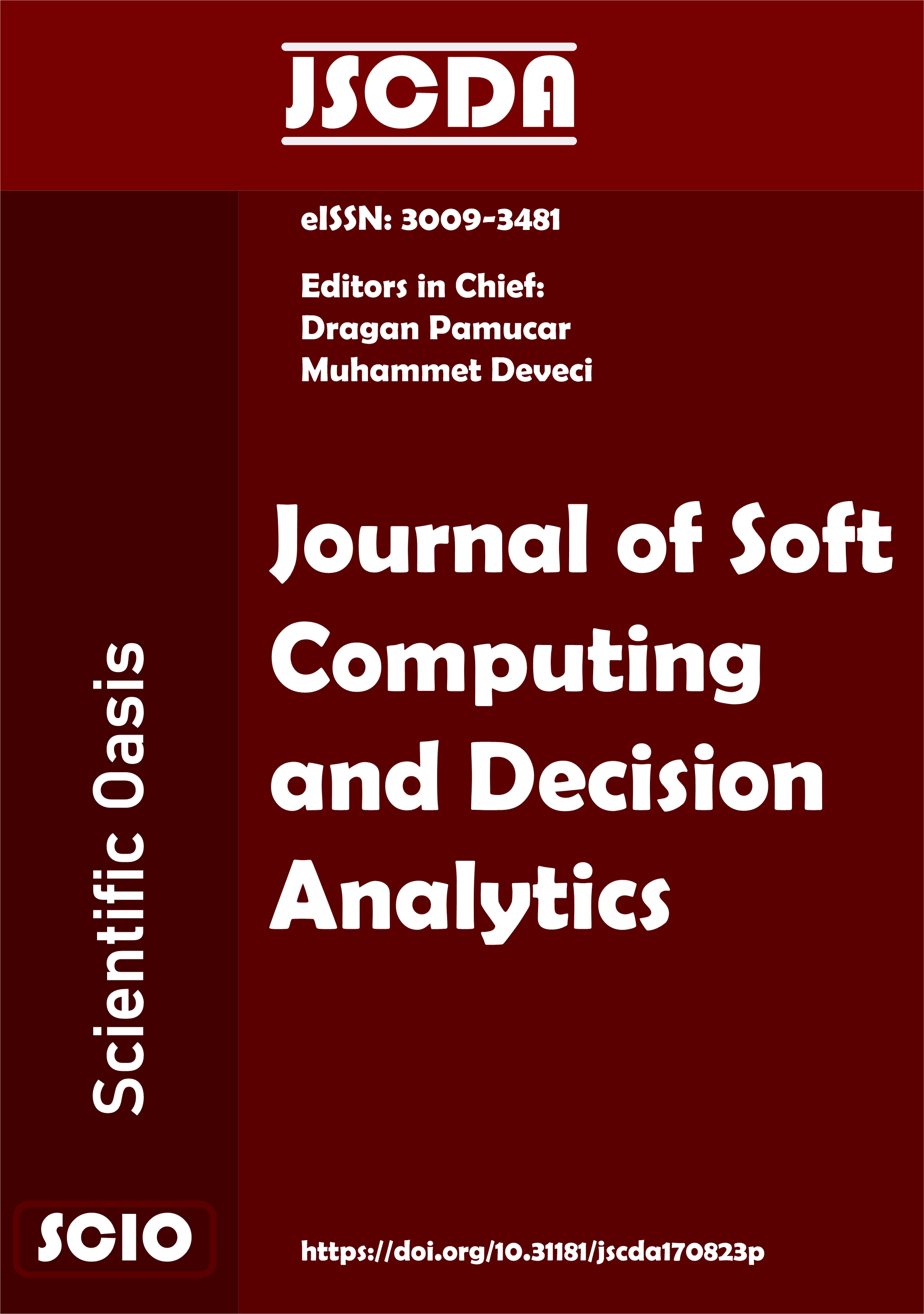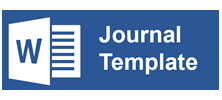Enhancement the Performance of Multi-Level and Multi-Commodity in Supply Chain: A Simulation Approach
DOI:
https://doi.org/10.31181/jscda1120232Keywords:
Supply chain management, Discrete-event simulation, Inventory system, Optimization, Multi-level networkAbstract
In today's global economy, effective supply chain management plays a pivotal role in the success of a business. The repercussions of a business strategy on the entire supply chain remain uncertain until it is implemented. Utilizing simulations offers the opportunity to gauge performance before implementing the strategy. The primary aim of employing supply chain simulation is to analyze the effects of different strategies on profit enhancement and cost reduction across all supply chain tiers. This research paper has formulated a discrete event simulation model using Arena software to evaluate and enhance the operational efficiency of the detergent supply chain. The problem involves multiple levels and commodities, encompassing four manufacturers, two intermediate storage warehouses, and four main distributors following an (s, S) inventory control approach. Shortages are permitted, leading to a partial loss or back-ordering of products. The overarching objective is to minimize the overall inventory costs within the system, accounting for holding costs at each tier, managing shortages, and the expense incurred due to lost sales. A range of scenarios are developed to set control parameters, with the evaluation of supply chain performance falling into two main categories: financial and operational considerations.
Downloads
References
Goodarzian, F., Kumar, V., & Abraham, A. (2021). Hybrid meta-heuristic algorithms for a supply chain network considering different carbon emission regulations using big data characteristics. Soft Computing, 25, 7527-7557. https://doi.org/10.1007/s00500-021-05711-7
Shirazi, H., Kia, R., & Ghasemi, P. (2021). A stochastic bi-objective simulation–optimization model for plasma supply chain in case of COVID-19 outbreak. Applied Soft Computing, 112, 107725. https://doi.org/10.1016/j.asoc.2021.107725
Motevalli-Taher, F., Paydar, M. M., & Emami, S. (2020). Wheat sustainable supply chain network design with forecasted demand by simulation. Computers and Electronics in Agriculture, 178, 105763. https://doi.org/10.1016/j.compag.2020.105763
Arif, A., Wang, Z., Chen, C., & Chen, B. (2019). A stochastic multi-commodity logistic model for disaster preparation in distribution systems. IEEE Transactions on Smart Grid, 11(1), 565-576. https://doi.org/10.1109/TSG.2019.2925620
Safaei, S., Ghasemi, P., Goodarzian, F., & Momenitabar, M. (2022). Designing a new multi-echelon multi-period closed-loop supply chain network by forecasting demand using time series model: a genetic algorithm. Environmental Science and Pollution Research, 29(53), 79754-79768. https://doi.org/10.1007/s11356-022-19341-5
Araya-Sassi, C., Paredes-Belmar, G., & Gutiérrez-Jarpa, G. (2020). Multi-commodity inventory-location problem with two different review inventory control policies and modular stochastic capacity constraints. Computers & Industrial Engineering, 143, 106410. https://doi.org/10.1016/j.cie.2020.106410
Ghasemi, P., & Khalili-Damghani, K. (2021). A robust simulation-optimization approach for pre-disaster multi-period location–allocation–inventory planning. Mathematics and computers in simulation, 179, 69-95. https://doi.org/10.1016/j.matcom.2020.07.022
Rahman, M. M., Nguyen, R., & Lu, L. (2022). Multi-level impacts of climate change and supply disruption events on a potato supply chain: An agent-based modeling approach. Agricultural Systems, 201, 103469. https://doi.org/10.1016/j.agsy.2022.103469
Yu, C., Zhan, Y., & Sohail, M. (2022). SDSM: Secure Data Sharing for Multilevel Partnerships in IoT Based Supply Chain. Symmetry, 14(12), 2656. https://doi.org/10.3390/sym14122656
Zheng, Y., Liu, L., Shi, V., Huang, W., & Liao, J. (2022). A Resilience Analysis of a Medical Mask Supply Chain during the COVID-19 Pandemic: A Simulation Modeling Approach. International Journal of Environmental Research and Public Health, 19(13), 8045. https://doi.org/10.3390/ijerph19138045
Abdolazimi, O., Salehi Esfandarani, M., Salehi, M., Shishebori, D., & Shakhsi-Niaei, M. (2023). Development of sustainable and resilient healthcare and non-cold pharmaceutical distribution supply chain for COVID-19 pandemic: a case study. The International Journal of Logistics Management, 34(2), 363-389. https://doi.org/10.1108/IJLM-04-2021-0232
Arji, G., Ahmadi, H., Avazpoor, P., & Hemmat, M. (2023). Identifying resilience strategies for disruption management in the healthcare supply chain during COVID-19 by digital innovations: A systematic literature review. Informatics in Medicine Unlocked, 101199. https://doi.org/10.1016/j.imu.2023.101199
Zhang, Y., Li, Z., & Zhao, Y. (2023). Multi-mitigation strategies in medical supplies for epidemic outbreaks. Socio-Economic Planning Sciences, 87, 101516. https://doi.org/10.1016/j.seps.2023.101516
Lacy-Nichols, J., Nandi, S., Mialon, M., McCambridge, J., Lee, K., Jones, A., ... & Moodie, R. (2023). Conceptualising commercial entities in public health: beyond unhealthy commodities and transnational corporations. The Lancet, 401(10383), 1214-1228. https://doi.org/10.1016/S0140-6736(23)00012-0
Gupta, H., & Kayande, R. A. (2023). Enhancing Pharmaceutical Supply Chain Resilience: A Study of Pharmaceutical Companies in Multiple Geographies. Indian Journal of Pharmaceutical Education and Research, 57(2), 603-611. https://doi.org/10.5530/ijper.57.2.74
Asamoah, K., Asare-Bediako, E., & Jacqueline, A. P. (2023). Effects of Supply Chain Visibility on Supply Chain Performance in Ghana Health Service: The Case of Kumasi Metro Health Directorate. Open Journal of Business and Management, 11(2), 437-463. https://doi.org/10.4236/ojbm.2023.112024
Gozgor, G., Khalfaoui, R., & Yarovaya, L. (2023). Global supply chain pressure and commodity markets: Evidence from multiple wavelet and quantile connectedness analyses. Finance Research Letters, 54, 103791. https://doi.org/10.1016/j.frl.2023.103791
Rais, M., Gautam, P., Yadav, P., & Singh, M. I. (2023). Reimagining India's cold chain sector and its contribution to Atmanirbhar Bharat and global supply chain trends. International Journal of Procurement Management, 18(1), 1-19. https://doi.org/10.1504/IJPM.2023.132610
Schöneich, S., Saulich, C., & Müller, M. (2023). Traceability and foreign corporate accountability in mineral supply chains. Regulation & Governance. https://doi.org/10.1111/rego.12527
Berning, L., & Sotirov, M. (2023). Hardening corporate accountability in commodity supply chains under the European Union Deforestation Regulation. Regulation & Governance. https://doi.org/10.1111/rego.12540
Ma, X., Liu, Y., & Bai, X. (2023). Globalised robust bilevel model for multi-commodity distribution and vehicle assignment in post-disaster rescue. International Journal of Systems Science: Operations & Logistics, 10(1), 2225113. https://doi.org/10.1080/23302674.2023.2225113
Tümer, E. İ., Akbay, S., & Palabiyik, E. (2018). The economic contribution of recycling in Kahramanmaras. Kahramanmaraş Sütçü İmam Üniversitesi Tarım ve Doğa Dergisi, 21, 146-153. https://doi.org/10.18016/ksutarimdoga.vi.472832
Robles, M., Serrano, J. D., Maragunic, M. L., & Noche, B. (2016). Developing Support Tools for Compliance in Supply Chains. Logistics and Supply Chain Innovation: Bridging the Gap between Theory and Practice, 339-351. https://doi.org/10.1007/978-3-319-22288-2_20
Joshi, S., & Sharma, M. (2022). A literature survey on vaccine supply chain management amidst COVID-19: literature developments, future directions and open challenges for public health. World, 3(4), 876-903. https://doi.org/10.3390/world3040049
Abbasi, S., Sıcakyüz, Ç., & Erdebilli, B. (2023). Designing the home healthcare supply chain during a health crisis. Journal of Engineering Research, 100098. https://doi.org/10.1016/j.jer.2023.100098
Kessy, S. S. A., Salema, G. L., & Simwita, Y. (2023). Lean thinking in medical commodities supply chains: applicability and success factors for Tanzanian health supply chains. Journal of Humanitarian Logistics and Supply Chain Management.
Downloads
Published
Issue
Section
License
Copyright (c) 2023 Scientific Oasis

This work is licensed under a Creative Commons Attribution-NonCommercial-NoDerivatives 4.0 International License.
















